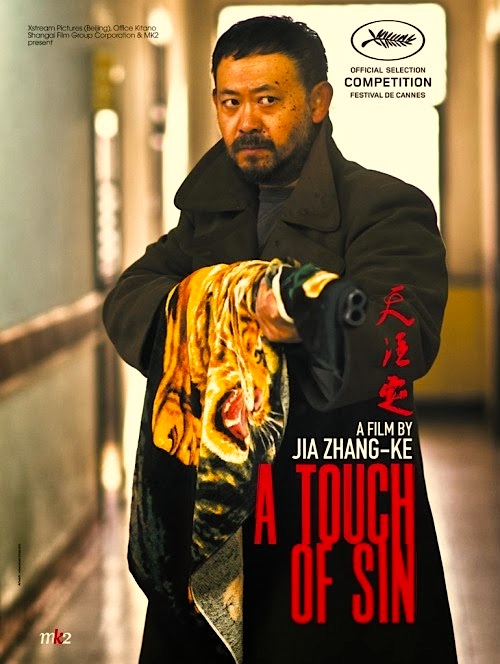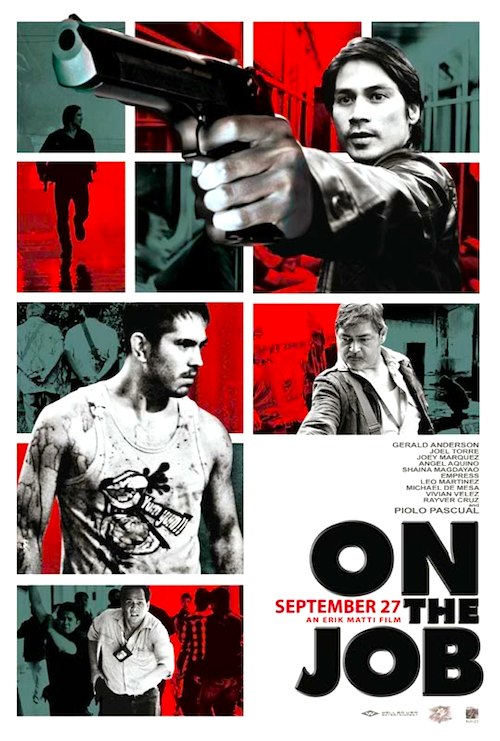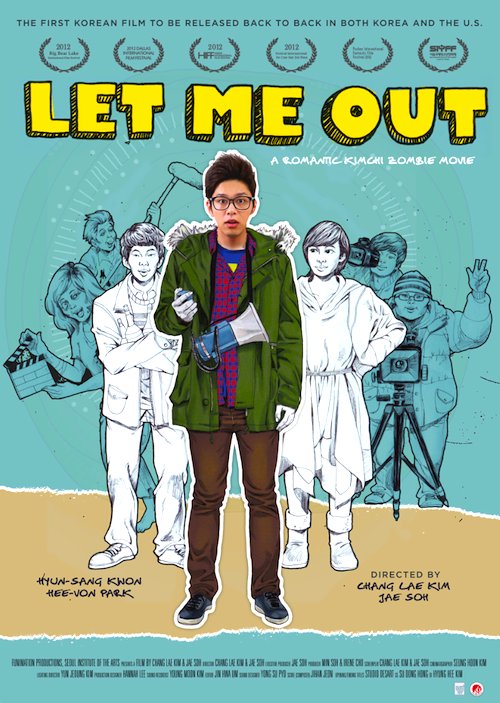By Joe Bendel. It is hard to imagine Jia Zhangke releasing a wuxia martial arts epic. Despite the hat-tips to King Hu (who directed A Touch of Zen), it would be more accurate to describe his latest film as a meditation on violence, offering a challenging glimpse into the heart of a lawless contemporary China. American partisans on either side of the gun control debate could find themselves squirming at its morally ambiguous portrayal of a lone shooter, as well. Of course, Jia has never displayed a compulsive need to make things easy. Nonetheless, A Touch of Sin may yet prove to be one of his most accessible films when it screens as a main slate selection of the 51st New York Film Festival.
Right from the opening sequence, viewers will know they are in a different sort of Jia Zhangke film—one with a body count. The mystery motorcyclist will reappear later. Instead we will follow Dahai, a disillusioned labor leader, who returns home to stir up trouble for the corrupt village party boss and the new fat cat factory owner greasing his wheels. Instead, it is Dahai who is beaten and humiliated. Eventually, the mockery he endures pushes Dahai to the edge.
Without question, Sin’s first arc is its most unnerving. Much like Rafi Pitts’ criminally under-appreciated The Hunter, Sin openly invites viewers to condone or at least mitigate a shocking act of violence. Yet, the consistently contrarian Jia further complicates our emotional response by implying that some of Dahai’s rage might be tragically misplaced. It is keenly disturbing filmmaking, perfectly served Wu Jiang’s tightly wound performance.
Jia then shifts his attention to Zhou San, the sociopathic wanderer who started the film with a bang. He has returned to Chongqing, but his family is not too sure how they feel about seeing him again. Zhou’s story holds considerable potential, given the sense of danger that follows the drifter wherever he goes, but it is not nearly as well developed as those that immediately precede and follow it.
The presence of Zhao Tao, Jia’s longtime muse and now wife, promises and duly delivers a return to form. Zhao’s Zheng Xiaoyu is the receptionist at a half-sleazy sauna in Hubei, carrying on a long distance affair with Zhang Youliang, a factory manager in Guangzhou. Unfortunately, the family of the betrayed wife discovers their furtive relationship, sending goons to rough up Zheng. It will not be the only incident of injustice she witnesses first hand. When an abusive sauna client tries to force himself on her, she finally responds in much the same manner as Dahai.
 For the concluding segment, Jia shifts to Guangdong, where a rootless migrant worker takes a series of jobs, including assembly line work in Zhang’s factory. However, it is Xiaohui’s experiences in the local luxury hotel-brothel that will be his emotional undoing. Luo Lanshan and Li Meng are quite engaging, developing some touching chemistry together as Xiaohui and the young working girl he courts. However, their storyline feels rather rushed (something you would never expect in Jia’s films), hustled to its untimely conclusion before all the necessary psychological bases have been touched.
For the concluding segment, Jia shifts to Guangdong, where a rootless migrant worker takes a series of jobs, including assembly line work in Zhang’s factory. However, it is Xiaohui’s experiences in the local luxury hotel-brothel that will be his emotional undoing. Luo Lanshan and Li Meng are quite engaging, developing some touching chemistry together as Xiaohui and the young working girl he courts. However, their storyline feels rather rushed (something you would never expect in Jia’s films), hustled to its untimely conclusion before all the necessary psychological bases have been touched.
Granted, A Touch of Sin is uneven, but it is a major cinematic statement, spanning class and geography. Without question, it is Jiang Wu and Zhao Tao who administer the arsenic with their fearless, visceral performances. In fact, with her work in Sin, one can make the case Zhao is the definitive and defining actress of our day and age. Don’t even counter with Streep. Unlike her Rich Little impersonations that consistently pull you out of the movie, Zhao always draws viewers into her films and characters. She is beautiful, but chameleon-like, playing parts that are emblematic of globalism (as in The World) and Chinese social alienation (a la 24 City). Yet, she is also achingly moving in a straight forward chamber drama like Jia’s short Cry Me a River.
It is hard to miss the implications of Sin. Jia unequivocally takes the Chinese state bureaucracy and their corporate cronies to task for their pervasive corruption. He also casts a disapproving eye on the burgeoning sex industry. For all its trenchant criticism, Sin is arguably somewhat encouraging—simply because Jia was able to complete it as he intended. Given his perpetually half pregnant state as a former independent filmmaker partially and uneasily incorporated into the state system, one always wonders if he will still be allowed to make his films according to his aesthetic and ethical principles. A Touch of Sin might be something of a stylistic departure, but it is very definitely a Jia Zhangke film, which is happy news indeed.
Even with its odd imperfections here and there, A Touch of Sin packs a whopper of a punch. Highly recommended for China watchers and fans of social issue cinema, Sin screens this Saturday (9/28) at Alice Tully Hall and the following Wednesday (10/2) at the Beale, as part of this year’s NYFF, with a regular theatrical opening to follow next Friday (10/4) at the IFC Center.
LFM GRADE: A-
Posted on September 23rd, 2013 at 4:53pm.



